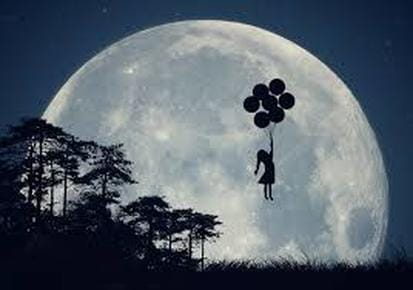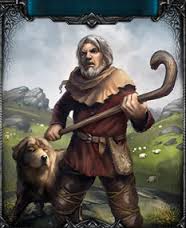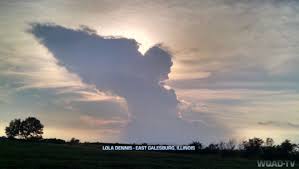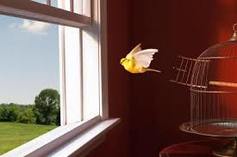
Vay’hi mikeitz sh'natayim yamim ufaro holem- And it was at the end of two years to the day, Pharaoh dreamed… Vayikatz Paro- and Pharaoh awoke… This week’s reading begins with Pharaoh’s dream: He is standing by the Nile, when seven beautiful, healthy cows emerge from the water and begin grazing in the marshland. Suddenly, seven more cows emerge, except these ugly and gaunt cows eat up the seven healthy cows. Next, he dreams that seven beautiful, healthy ears of grain get swallowed up by seven thin and scorched ears of grain. Then Pharaoh wakes up, agitated and disturbed. The name of this parshah is Mikeitz, which means “at the end”- referring to the end of a two-year period after which Pharaoh had the dream. But when Pharaoh awakens from his dream, the same word is used again in a different form- “Vayikatz Paro- Pharaoh awakened.” Why is the word for “ending” used also for awakening? For most of us, there’s no awareness of dreaming while we’re dreaming; it’s only in waking up that you realize, “Oh, it was only a dream.” You say, only a dream because it has no external reality; it’s just an experience generated by the mind. Then, when you wake up, you become aware of what’s actually going on around you. Life is real, and unlike the dream, there are real consequences in the world external to your mind. And yet, there’s an aspect of waking life that’s also like a dream. Right now, your awareness is perceiving the richness of this moment- the beings around you, the space you’re in, the sense of your body, your feelings and your thoughts. Ordinarily, you perceive some things as external to you, such as these words, and some things as internal to you, such as your thoughts. There are physical things out there, and emotional and mental things in here. But what many people never notice is that everything in your perception- from the ground under your feet to the clouds in the sky to the feelings in your gut- are all nothing but consciousness, exactly like a dream. Of course there’s also the whole universe out there independent of your consciousness, but your perception of the universe completely arises within your consciousness as part of your consciousness. In other words, everything you perceive is actually you, since ultimately, you are consciousness. So that means that when you judge people, or complain, or in any way resist the truth of whatever arises in the moment, you’re actually resisting yourself- you’re creating a split within yourself which creates a sense of being not whole, of being incomplete. And that’s the dream- that’s the illusion- you think that you need something out there to change in order to feel whole or complete. Just like the gaunt and hungry cows who eat up the full cows, you’re never satisfied because you’re constantly pulling away from yourself, creating an inner split. But when you awaken to realize that everything “out there” is always only perceived “in here,” then you can relax and accept everything in your experience as your own being. When you do that, your consciousness that's become split in two can merge back into oneness, bringing that sense of inner duality to an end. And that’s why the word that’s used here for “awaken” is the word for “ending”- katz- because it’s an end to inner duality. It’s also an end to time, in a sense, because there’s no longer any journey to wholeness or fulfilment; wholeness is simply what you are when you stop pulling yourself apart. There’s a hint of this in the opening line as well- “Vay’hi mikeitz sh'natayim yamim ufaro holem- And it was at the end of two years, to the day…” The word for “year” is shana, which also means “change” or “time.” “Two years” hints that in order to have time, you need two-ness; you need duality. That's because time and change are based on the perception of before and after. But when you see that reality is not in any way ever separate from your perception, that your memories of the past and projections of the future are all arising in the now, that's the keitz shana- the end of time, the awakening into the Eternal Present. So on this Shabbat Mikeitz, the “Sabbath of Ending” which is also Shabbos Hanukah, may everything that arises in your perception be fully embraced as the energy of consciousness, burning ever more brightly within your being and expressing itself in love and healing on all levels. Good Shabbos, b yosef
0 Comments
 This week’s reading begins with the story of Yosef, or Joseph: “Yosef hayah ro’eh et achav- Joseph was a shepherd with his brothers… v’hu na’ar et b’nei Vilha v’et b’nei Zilpa- and he was a youth with the sons of Bilha and Zilpa...” It then says that he brought evil reports about his brothers to their father. Now the word for “shepherd” is ro’eh, and the word for “evil” is ra’ah- exactly the same letters, just voweled a little differently, hinting at a connection between shepherding and judging others. This is also reflected in the wording. A more straightforward way of saying that he was a shepherd with his brothers would be “hayah ro’eh im achav”- instead of “hayah ro’eh et achav”- which could be read that he’s being a shepherd at his brothers. This hints at two different levels of what’s going on. On the surface, Joseph and his brothers are out shepherding the sheep. But at the same time, Joseph sees himself as shepherding his brothers. He feels that he’s above them, judging them and tattling on them to their father. His vision of himself as above the rest of his family is of course prophetic- he eventually becomes an actual ruler with Pharaoh in Egypt. But at this point in the story, his leadership is immature- as it says, “V’hu na’ar- and he was a youth.” There’s a level of your own being that is above everything. It's the place within you that it sees the fullness of whatever arises in your experience, yet remains free from it, unencumbered by whatever your situation is. That level of inner freedom is simple awareness. Another name for it is Hokhmah or Wisdom, because from that place of awareness, wisdom naturally flows and can guide you in your particular situation. So your awareness is above your situation, on one hand, yet offers its steady guidance at the same time- just like a ro’eh- a shepherd- guides the flock, yet is not itself a sheep. The thinking mind, however, loves to claim the wisdom of awareness for itself in order to feed the ego. The ego thinks, "This is my wisdom"- and then gets gratification from believing itself to be above others. That’s Joseph as the na’ar- the youth- who brings evil reports. As long as the immature mind coopts the wisdom of awareness, the ro’eh becomes ra’ah- an evil shepherd. So what’s the remedy? The remedy is hidden within the letters. The words ro’eh and ra’ah are Reish-Ayin-Heh. The middle letter, Ayin, literally means “eye,” hinting at awareness as the deepest identity of the shepherd. The Reish literally means “head,” hinting that as long as the “head” is ruling the “eye”- as long as the thinking mind claims awareness for itself, the shepherd is evil. But if you change the Ayin to an Alef, the letter of Oneness, then the word becomes Re’eh which means, “see.” When you simply see, not in the literal visual sense but in the sense of simple perception, then you can notice the antics of the mind and ego and not get seduced by them. From this comes mature leadership, where the wisdom that pours into the mind is not coopted or claimed, but is humbly received as a gift. So on this Parshat Vayeyshev, the Sabbath of Dwelling, may we practice dwelling in the simple Presence and receive the gift of guidance from the Ultimate Shepherd. May we be guided by this inner wisdom on a path of love, renewal and healing. Good Shabbos!!! -brian yosef 
“Vayishlakh Yakov malakhim lifanav el eisav-
And Jacob sent angels before him to Esau…” This week’s reading begins with Ya’akov, with Jacob, sending angels ahead of him to appease his brother Eisav who had been intent on killing Ya’akov.
So who are Ya’akov and Eisav?
They’re twin brothers, but they were also opposite archetypes. Eisav was a hunter, a man of the field. Ya’akov, on the other hand, “dwelled in tents” where, according to the tradition, he would study Torah. Get it? Eisav represents the body, and Ya’akov the mind. Eisav wants to kill Ya’akov because Ya’akov used his cunning intelligence first to convince Eisav to sell him his birthright, and later to trick their father Yitzhak into giving Eisav’s blessing of the first born to Ya’akov. And isn’t this what the mind so often does? The body has its needs- not very complicated or profound- it needs good food, fresh air, good rest, and so on. But our minds have other more sophisticated and ambitions and plans. And because of all the great things we want to accomplish and experience, we end up polluting our bodies, not getting enough rest and exercise, and pushing ourselves in ways that can make us sick- not to mention the damage we cause to other people and to the earth. Eventually, Eisav will rebel- the body rebels, the oppressed rebel, the earth rebels. And that’s when life can fall apart. So what’s the solution? It’s to realize, first of all, that there’s a much more profound dimension to your mind than your thoughts, ideas and ambitions; and that’s your sensitivity- your awareness, your Presence. Just as Ya’akov sends the malakhim- the angels- to Eisav, so you can send your awareness into your body. That’s how you can give yourself love, because awareness is the carrier wave for love; it’s the whole basis for love. After all, before you do anything loving for anyone, you first have to be present with them, you have to pay attention to them. Sometimes, attentiveness is all that’s needed. And, it’s the same for your own body. So what does Eisav do when they finally meet? Eisav weeps and kisses Ya’akov. In the same way, when you bring your mind out of its imaginary worlds of ambition and projection and down into your physical body, then with practice, your body will reflect back to you that quality of love and attention as a feeling of blissful openness, showing you the true nature of your own Being. So on this Shabbos Vayishlakh, the Sabbath of Sending, may we send our loving attention deeply into our own bodies, and may our appreciation of the body lead us to eradicate all the needless human oppression on this planet. May we also love and protect this earth which is our physical home. And as we approach the time of Hanukah, may this loving attention- this Power of Presence- ever increase like the lights of the menorah. Good Shabbos!! -b yosef  "Vayeitzei Ya'akov- And Ya'akov went out from Be'er Sheva..." Our reading begins with Jacob fleeing for his life from his brother’s rage. "Vayifga bamakom- He encountered the Place..." This word for "The Place"- HaMakom- is unusual because it’s also one of the Names of God. So why is God called The Place? Jacob falls asleep and dreams of a ladder set toward the earth, with its top reaching toward the heavens. There are angels going up and down the ladder. Suddenly he has a vision of the Divine and receives a special message of hope and protection. When he wakes up, he says, “Akhein, yesh Hashem bamakom hazeh, v’anokhi lo yadati- "Surely the Divine is in this Place, and I didn’t even know it!" The word for knowing- Da’at or Da’as- isn’t the same as the English word for knowing, which implies an intellectual understanding. The Hebrew word is the same word used in the Garden of Eden story- “V’ha’adam yadata et Khava- and Adam knew Eve...” This the knowing of intimacy and connection, not the mind and thinking. So the hint here is that if you want to really "see" the Divine in this Place- the Makom that you’re in right now- then you have to really connect with it fully and consciously. Know- Da- that there is only one experience happening right now, that everything within your experience in this moment is arising within the open space that is your awareness. If let your awareness open and connect deeply with the fullness of what’s happening, then you’ll know for yourself- “Akhein- Yesh Hashem bamakom hazeh!" The Divine is not just in this space, the Divine is this space. And all aspects of your experience- your thoughts, feelings, sensations, and perceptions- are all one with the space that you are: The open space of awareness within which this moment arises. But to know that, to be intimate with the space of this moment, you have to go out- Vayeitzei- from those limited forms of consciousness- the thoughts and feelings we often think of as “me”- and into the vast open space of Presence. So my friends, on this Shabbat Vayeitzei, the Sabbath of Going Out, may we all remember to “go out” from ego to meet the Timeless that glows softly within all things. And, let’s go out to greet the Timeless One as the Shabbos Kallah, the indwelling Presence of Shabbat. Good Shabbos good Shabbos!!! love, brian yosef  “The children struggled within her, and she said: ‘Why am I like this?’ So, she went to inquire of the Divine. Hashem said to her, “Two nations are within your womb… and the elder shall serve the younger…” -Bereisheet 25:22-23 Here in Tucson, the Catalina mountains rise majestically in the north of the city. When we first moved here, I would look up and think, “I wonder if those mountains will ever seem normal and unimpressive?” As lovers of travel know, when you visit a new place where you have no history or baggage, there’s a brightness to everything- even dirty things are bright, vivid, and rich. But after you’ve been somewhere a while, the nervous system tends to clump everything together. You look at the tree you’ve seen a million times in your backyard, and instead of seeing the miracle of the tree, you see your laundry, the bills, the broken sink, the broken relationships. All your past experiences of a place seems to soak into every particular piece of that place. You become conditioned. Conditioning is not in itself a bad thing; it’s how we learn. But it’s vital to remember that there is always an aspect of your experience that is unconditioned. You can see and feel that unconditioned aliveness in children- their wonder, their innocent excitement about things. And of course, along with that exquisitely innocent and unconditioned consciousness comes... stupidity! That’s why we, the old and the conditioned, need to protect them from themselves. The older must serve the younger. “V’rav ya’avod tza’ir- And the older shall serve the younger...” And that’s as it should be- the experience of the old and the conditioned must preserve and protect the fragile, the bright, the unconditioned. But this truth applies not only in the external realm of protecting children, but also in the inner realms of consciousness. For there is a level within your own being that is still completely unconditioned. Like the child, it is bright, alive, and curious. You may think, “But I am old- my conditioning is too heavy, my trauma is too great, my life has been too difficult, or too easy, or whatever… how can I get rid of all the oldness to discover my inner youthfulness? How can I reach the unconditioned?” The Good News is: You don’t have to “reach” it, and you don’t have to get rid of your conditioning. That which sees all your conditioning, is itself Unconditioned. Instead of saying, “I am old”- instead of saying, “my conditioning”- simply notice the feeling of oldness. Notice the impulse to think or judge things in a certain way. Notice the feeling that arises when you see the tree in your backyard. The seeing itself- That is the Unconditioned. If you practice staying in the seeing, in the noticing, without getting absorbed into the reaction, you will also begin to notice- there is an inner vastness that is untouched by the old thoughts and old feelings. That vastness is your Presence, your Awareness. You don’t need to find it, you are it- but you need to be with all that conditioning instead of being the conditioning. Then, you will see the mountain anew, every day. There is a story that the disciples of Rabbi Elimelekh came to him and asked: “In the Torah we read that Pharaoh said to Moses and Aaron, ‘Show a wonder to you.’ How are we to understand this? He should have said, ‘Show a wonder to me.’” Rabbi Elimelekh explained: “Magicians know what they want to accomplish and how to accomplish it. It is not a wonder for them, but only for their beholders. But for those who are merely a vessel for the miracle that God accomplishes through them, their own wonder arises from their deeds and overwhelms them. And that’s what Pharaoh meant: ‘Don’t show me your conditioned expertise! Show me the wonder that arises out of your Unconditioned innocence…’ As we enter this Shabbat Toldot, The Sabbath of Generations, may we open and see the miraculous eons of conditioning that are creating our experience right now. May we know that the seeing and the opening is Itself Unconditioned- Hadeish yameinu kikedem- may our days be fresh and new as they were at the beginning, before the story began. And as we enter the month of Kislev and of Hanukah, the Holiday of Dedication, may we dedicate ourselves ever more deeply to a path of ever increasing Light of Presence. Good Shabbos, Hodesh Tov! b yosef For more on Toldot, Click Here |
Archives
July 2024
|
 RSS Feed
RSS Feed